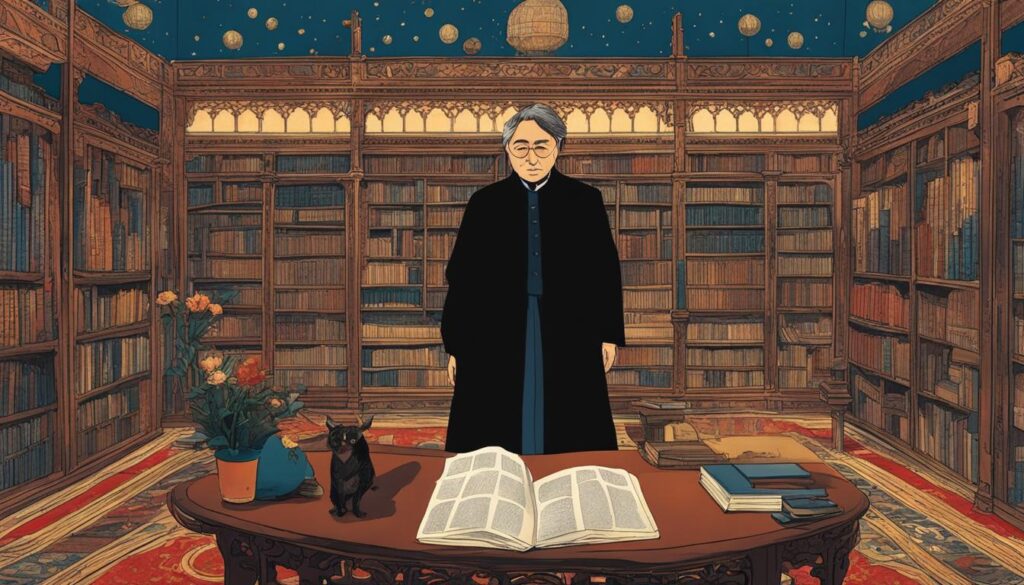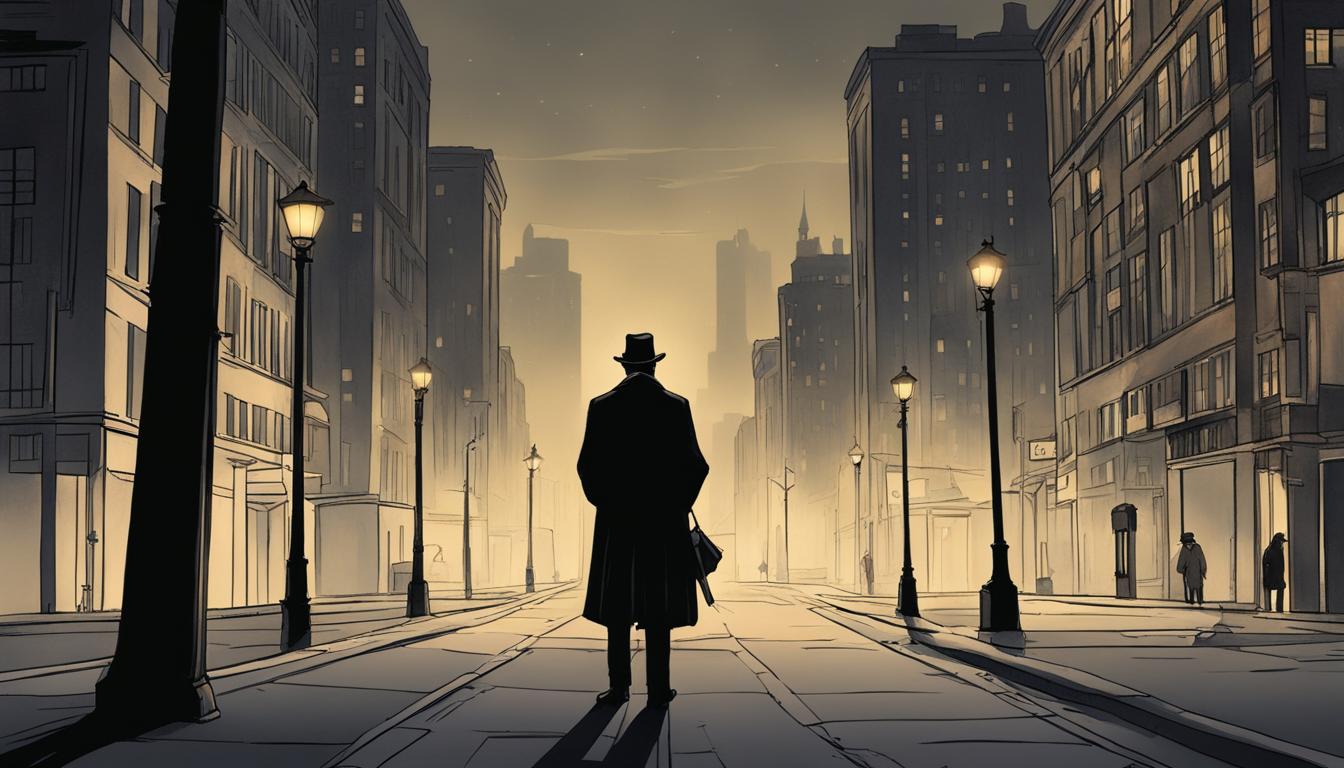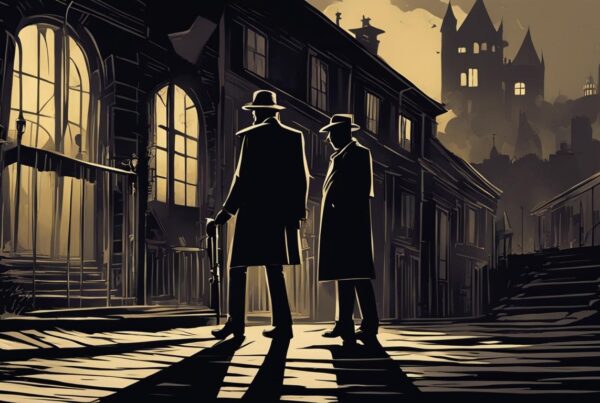Kazuo Ishiguro is a British novelist and screenwriter known for his works such as “The Remains of the Day” and “Never Let Me Go.” “When We Were Orphans” is another remarkable novel that Ishiguro wrote in 2000. This detective novel tells the story of Christopher Banks, a famous detective and eyewitness to his parents’ disappearance in Shanghai when he was young.
In this article, we will discuss the significance of “When We Were Orphans” by Kazuo Ishiguro and its plot, characters, themes, setting, and historical context. We will also analyze the writing style and narrative structure of the novel, as well as its critical reception and cultural significance. Let’s begin exploring this outstanding work of fiction.
About the Author, Kazuo Ishiguro
Kazuo Ishiguro is a British novelist and screenwriter born in Nagasaki, Japan in 1954. He moved to England with his family at the age of five and studied English and Philosophy at the University of Kent. Ishiguro began his writing career as a songwriter for a jazz band before turning to fiction, with his debut novel “A Pale View of Hills” published in 1982.
Ishiguro’s writing style is characterized by his tendency to explore themes of memory, time, and self-delusion, often through the use of unreliable narrators and unspoken tensions between characters. His novels have gained critical acclaim and a reputation for being subtle and introspective, exploring the depths of human emotions and relationships.
Ishiguro’s previous works include “The Remains of the Day,” which won the Booker Prize in 1989 and was later adapted into a film starring Anthony Hopkins, as well as “Never Let Me Go,” “An Artist of the Floating World,” and “The Buried Giant.” His most recent work, “Klara and the Sun,” was published in 2021.
Overview of “When We Were Orphans”
The novel “When We Were Orphans” by Kazuo Ishiguro follows the story of a renowned detective named Christopher Banks. Set in the early 20th century, the book explores the themes of memory, loss, and the search for identity, as Banks travels from his childhood home in Shanghai, China to England to solve the mystery of his parents’ disappearance.
The story is told through Banks’ perspective, and Ishiguro’s use of first-person narration offers readers a glimpse into the detective’s thoughts and emotions as he navigates the complex plot. The novel is divided into three parts, each of which unveils new clues and revelations, building suspense and keeping readers engaged.
The setting of the story plays a significant role in the novel, as Ishiguro paints a vivid picture of both pre-World War II Shanghai and 1930s England. Through Banks’ journey, readers get a sense of the social and political tensions of the time, as well as the impact that war and colonialism had on individuals and society as a whole.
“…I had the conviction, lasting still, that powerful revenges were to be gained from having a superior understanding of one’s own weaknesses.”
Themes in “When We Were Orphans”
The novel “When We Were Orphans” by Kazuo Ishiguro explores various themes that are intertwined with the plot and character development. One of the major themes of the novel is the unreliability of memory. Throughout the story, the protagonist Christopher Banks struggles with piecing together his fractured memories from the past, and ultimately realizes that his recollections are unreliable and incomplete.
Another theme in the book is the impact of trauma on the human psyche. Through Christopher’s experiences during the Second Sino-Japanese War and his separation from his parents at a young age, the novel portrays how trauma can shape an individual’s perception of the world and influence their actions later in life.
The theme of identity is also explored in “When We Were Orphans.” Christopher’s search for his missing parents is in many ways a search for his own identity, and the novel raises questions about the fluidity of identity and the role of social constructs in shaping one’s sense of self.
The concept of imperialism and colonialism is another theme that is touched upon in the novel. Through the book’s setting in Shanghai during the early 20th century and the character of Sarah Hemmings, a mixed-race woman who faces discrimination, the novel highlights the damaging impact of colonialism on individual lives and experiences.
Overall, “When We Were Orphans” is a complex and thought-provoking novel that explores various themes related to memory, trauma, identity, and colonialism. It is a testament to Kazuo Ishiguro’s talent as a writer and his ability to tell intricate stories that resonate with readers long after the final page is turned.
Analysis of the Protagonist, Christopher Banks
Christopher Banks is a complex and multifaceted character whose motivations and actions drive the plot of “When We Were Orphans.” From the start, we see Christopher as a young boy in Shanghai, who then grows up to become a successful detective in London.
Throughout the story, Christopher is haunted by the disappearance of his parents, and he becomes obsessed with solving their mysterious disappearance. His determination and unwavering belief in his own abilities lead him down a dangerous path, ultimately putting himself and others in danger.
Despite his flaws, Christopher is a sympathetic character who evokes empathy from readers. His journey of self-discovery and the search for his identity is relatable and poignant. Ishiguro masterfully weaves in elements of Christopher’s past to reveal the complexity of his character and emphasize his struggles.
One of the most intriguing aspects of Christopher’s character is his memory. Christopher often remembers his past vividly and can recall even small details with ease. However, his memories are unreliable and sometimes contradictory, hinting at the idea that Christopher is an unreliable narrator.
“I’m just trying to make my way in the world,” Christopher said, his voice low and measured. “I’m not trying to cause any harm. I’m just trying to find the truth.”
This quote from Christopher encapsulates his motivations and inner conflict. He is torn between his desire for the truth and the harm that his unyielding pursuit of it can cause.
Narrative Structure and Writing Style
“When We Were Orphans” is a masterclass in narrative structure and writing style. Kazuo Ishiguro employs a unique approach to telling the story of Christopher Banks, a renowned detective who returns to his childhood home in Shanghai to investigate the mysterious disappearance of his parents. The narrative is non-linear, with flashbacks and memories interspersed throughout the novel to create a complex and multi-layered story.
Ishiguro’s writing style is subtle and nuanced, with a focus on character development and internal conflicts. He conveys the emotional turmoil of Christopher Banks with a delicate touch, allowing the reader to empathize with the protagonist’s struggles. His use of language and imagery is evocative, creating vivid and immersive scenes that transport the reader to pre-World War II Shanghai.
Flashbacks and Memories
The use of flashbacks and memories in “When We Were Orphans” is a significant aspect of the novel’s narrative structure. Ishiguro employs these techniques to provide insight into Christopher Banks’ past and his motivations for returning to Shanghai. The memories are not presented in chronological order, creating a fragmented and disjointed narrative that mirrors the protagonist’s internal struggles and uncertainties.
Throughout the novel, Christopher Banks grapples with his conflicting memories of his parents and his childhood in Shanghai. Ishiguro’s use of flashbacks and memories allows the reader to experience these conflicts firsthand, providing a nuanced and complex portrayal of the protagonist’s emotional state.
Character Development
Ishiguro’s writing style is characterized by a focus on character development and internal conflicts. In “When We Were Orphans”, this is exemplified by the protagonist, Christopher Banks. Throughout the novel, Banks undergoes significant changes, from a confident and driven young detective to a vulnerable and emotionally complex man.
Ishiguro’s subtle approach to character development is particularly effective in “When We Were Orphans”. The reader is gradually drawn into Christopher Banks’ world, experiencing his conflicts and uncertainties firsthand and empathizing with his struggles. This creates a nuanced and complex portrait of the protagonist, highlighting the depth and complexity of human emotions.
“If I’d learned one thing from years of being a detective, it was that the more complicated the answer, the more likely it was that something was being hidden.” – Kazuo Ishiguro, When We Were Orphans
Setting and Historical Context
The setting of “When We Were Orphans” is largely based in early 20th century Shanghai, China, during a tumultuous time of political upheaval and international tension. It is a city of stark contrasts, with a vibrant cosmopolitan culture existing alongside deep poverty and political corruption.
The historical context is important to understanding the novel, as it takes place during a time of great change in China’s history. The country was in the midst of a political and social revolution, with the collapse of the Qing dynasty and the rise of the China Republican government. This period was also marked by the continued presence of foreign powers in China, leading to a sense of frustration and betrayal among many Chinese people.
“Shanghai was a city of stark contrasts, of brutal poverty and fantastic wealth, of deep corruption and noble sacrifice. It was a city where anything could happen.”
The historical context serves as a backdrop for the story, shaping the characters and their actions. Christopher Banks, the protagonist, is a product of this complex world, and his experiences are deeply influenced by the political and social realities of the time. Ishiguro’s use of the setting and historical context adds depth and richness to the novel, and helps to bring the story to life for readers.
Plot Twists and Unexpected Revelations
One of the most striking features of “When We Were Orphans” is the intricate web of plot twists and unexpected revelations scattered throughout the story. These unexpected turns keep readers on the edge of their seats, while also providing new insights into the story’s central mystery.
The first major plot twist happens when Christopher’s childhood friend Akira disappears under mysterious circumstances. This sets Christopher on a lifelong quest to uncover the truth about what happened to Akira, leading him down a dangerous path filled with unexpected danger and intrigue.
Another shocking revelation comes when Christopher finally discovers the true identity of the mysterious woman he has been pursuing for so long. This discovery shakes the core of his belief system and forces him to reassess his entire worldview and the events of his past.
The novel’s unexpected twists and turns not only make for a thrilling reading experience, but also serve to deepen our understanding of the characters and themes. They shed new light on the complex relationships between the characters and the socio-political context of the story.
Overall, the intricate web of plot twists and unexpected revelations in “When We Were Orphans” highlights the exceptional storytelling abilities of Kazuo Ishiguro. His masterful use of these elements not only keeps readers engaged, but also provides deeper insights into the human condition.
Critical Reception and Significance of the Novel
“When We Were Orphans” received mixed reviews upon its release in 2000, with some critics praising Ishiguro’s writing and others finding fault with the novel’s pacing and narrative structure. However, the book has since garnered a significant following and is often cited as one of Ishiguro’s most important works.
The significance of “When We Were Orphans” lies in its exploration of memory, childhood trauma, and the subjective nature of reality. The novel also examines the impact of imperialist politics and colonialism on personal identity and relationships.
“When We Were Orphans” is a masterful exploration of the fragility of memory and identity, and the ways in which our past experiences shape our present lives.” – The New York Times
The book’s themes and literary merit have earned it a place in the literary canon, with scholars frequently citing it as an important example of modernist literature. It has been the subject of numerous academic analyses and has been translated into multiple languages.
| Critics’ Reviews | Awards and Honors |
|---|---|
| “A beautifully written and thought-provoking novel that stays with the reader long after the final page.” – The Guardian | Nominated for the 2000 Booker Prize |
| “Kazuo Ishiguro’s writing is crisp and evocative, creating a vivid picture of a world on the cusp of change.” – The Washington Post | Shortlisted for the James Tait Black Memorial Prize |
| “A haunting and poignant exploration of human nature and the ties that bind us together.” – The Times | Winner of the Cheltenham Prize |
The critical reception and lasting impact of “When We Were Orphans” speak to its enduring significance and place in literary history.

Conclusion
In conclusion, “When We Were Orphans” by Kazuo Ishiguro is a captivating novel that explores themes of identity, memory, and loss. Ishiguro’s unique narrative structure and writing style, combined with the historical context of 1930s Shanghai, create a vivid and immersive reading experience. The protagonist, Christopher Banks, undergoes a profound character development as he confronts his past and searches for answers about his missing parents.
The plot twists and unexpected revelations in the story keep the reader engaged and add to the overall impact of the novel. Ishiguro’s writing style is masterful in its ability to convey complex emotions and themes in a subtle and nuanced way.
The critical reception of “When We Were Orphans” has been generally positive, with many praising Ishiguro’s ability to blend genre elements with literary fiction. The novel has also been noted for its cultural significance and its exploration of Eastern and Western cultures.
Overall, “When We Were Orphans” is a must-read for fans of literary fiction and historical fiction alike. Its exploration of complex themes and its masterful writing make it a significant contribution to the literary world.



